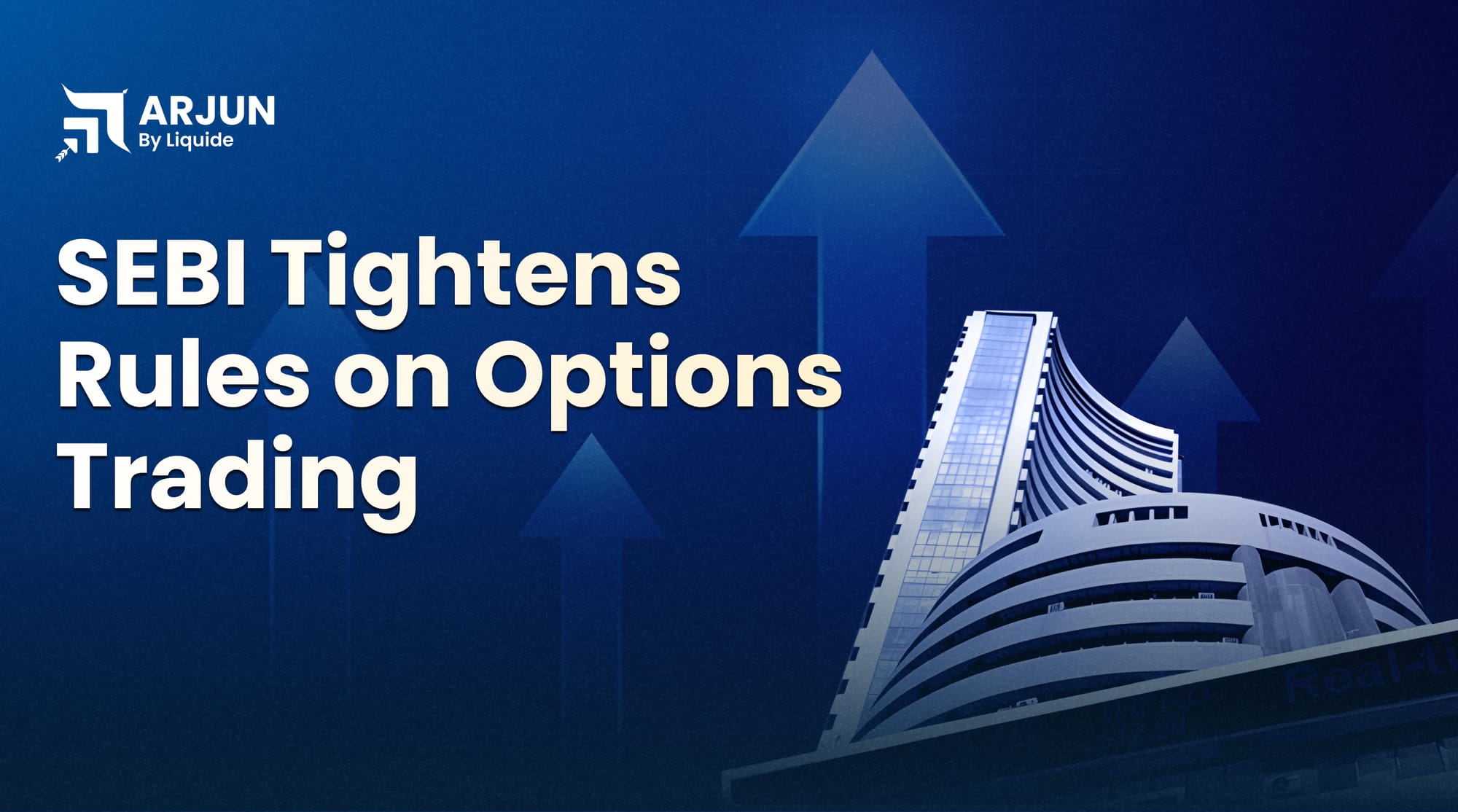SEBI's New F&O Trading Rules: Impact on Brokerage Stocks & Market Dynamics
Discover how SEBI's latest proposals for stricter regulations on Options trading will affect brokerage stocks and market dynamics in India.

Shares of Indian brokerages were under pressure on Wednesday following the Securities and Exchange Board of India's (SEBI) latest proposals aimed at imposing stricter regulations on Options trading. These proposals, detailed in a consultation paper, aim to tighten controls in a market that has seen significant speculative activity from retail investors. Recently, the government also increased taxes on derivative transactions to mitigate risks associated with high speculation. Read more about it here.
Let’s explore how these regulatory adjustments could influence the markets, potentially affecting trading volumes, market volatility, and investor behaviour.
Decoding SEBI's Proposed Regulatory Framework
SEBI's initiative seeks to revamp the framework for index derivatives trading by introducing significant adjustments. Central to the proposals in SEBI's consultation paper is the suggestion to restrict weekly options contracts to a single benchmark index per exchange. Additionally, the regulator proposes more than tripling the minimum trading amount for index options and increasing margin requirements.
Specific Changes Outlined
- Minimum Contract Size
Current Practice: Since 2015, the minimum contract size has been between Rs 5 lakh to Rs 10 lakh.
Proposed Changes: In Phase 1, the minimum value at the time of contract introduction will be between Rs 15 lakh to Rs 20 lakh, escalating to Rs 20 lakh to Rs 30 lakh in Phase 2 after six months.
- Rationalization of Weekly Index Products
Current Practice: Currently, the weekly expiry of index derivatives leads to daily expiries across various indices and exchanges.
Proposed Changes: Limit weekly expiries to one benchmark index per exchange. The National Stock Exchange (NSE) currently provides four weekly options contracts, whereas the Bombay Stock Exchange (BSE) offers two.
- Increase in Margin Requirements
Current Practice: No additional margins are required during the last two trading days before expiry.
Proposed Changes: An additional 3% Extreme Loss Margin (ELM) will be required on the penultimate day, increasing to 5% on the last day.
Other proposals include collecting options premium upfront, rationalising the strike price for options, and eliminating the calendar spread benefit on expiration day.
Rationale Behind SEBI’s Proposals
SEBI chief Madhabi Puri Buch cited concerns over significant annual losses from household savings through derivatives trading, amounting to Rs 50,000 to Rs 60,000 crore, as a primary reason for proposing stricter regulations. This financial impact highlights the need for reform.
Additionally, excessive speculative trading has been identified in the futures and options (F&O) market. NSE data indicates that retail investors alone contribute to around 50% of the trading volumes in index derivatives, surpassing volumes from proprietorship traders, foreign investors, and domestic institutional investors. SEBI's concern is further compounded by the Rs 51,689 crore cumulative trading loss incurred by 9.25 million unique individuals and proprietorship traders in the index derivatives of NSE in FY24, underscoring the urgency for these regulatory changes.
Potential Impact of SEBI's Proposals
Market Volatility and Trading Volumes
If these proposed measures are implemented in the final regulations, we may see a decline in trading volumes, affecting both retail participants—who will face upfront premium collection and increased lot sizes—and High Net Worth Individuals (HNIs)/High Frequency Traders, who will lose the benefits of calendar spreads and face higher margins at contract expiry. The streamlining of weekly expiries is expected to lessen the vibrancy of trading activities, potentially impacting liquidity and overall market participation.
Brokerage Sector Response
Shares of major brokerage firms like Angel One, 5Paisa Capital, and Motilal Oswal dropped by 1% to 5% in response to the news. These firms may need to adjust their strategies, potentially increasing brokerage fees to mitigate the impact of reduced trading volumes.
Next Steps and Industry Outlook
Following the release of this consultation paper, SEBI has opened the floor for public feedback, inviting comments and suggestions from stakeholders via its web-based portal or through email until August 20, 2024. The financial community is keenly watching how these proposed measures will reshape the trading landscape, potentially leading to more sustainable investment practices and a less volatile market environment.
Elevate Your Options Trading Game with Arjun by Liquide
If you’re looking to enhance your options trading skills, consider exploring Arjun by Liquide. This comprehensive platform offers option signals by SEBI-registered experts, a vibrant trader community, and extensive educational resources.

